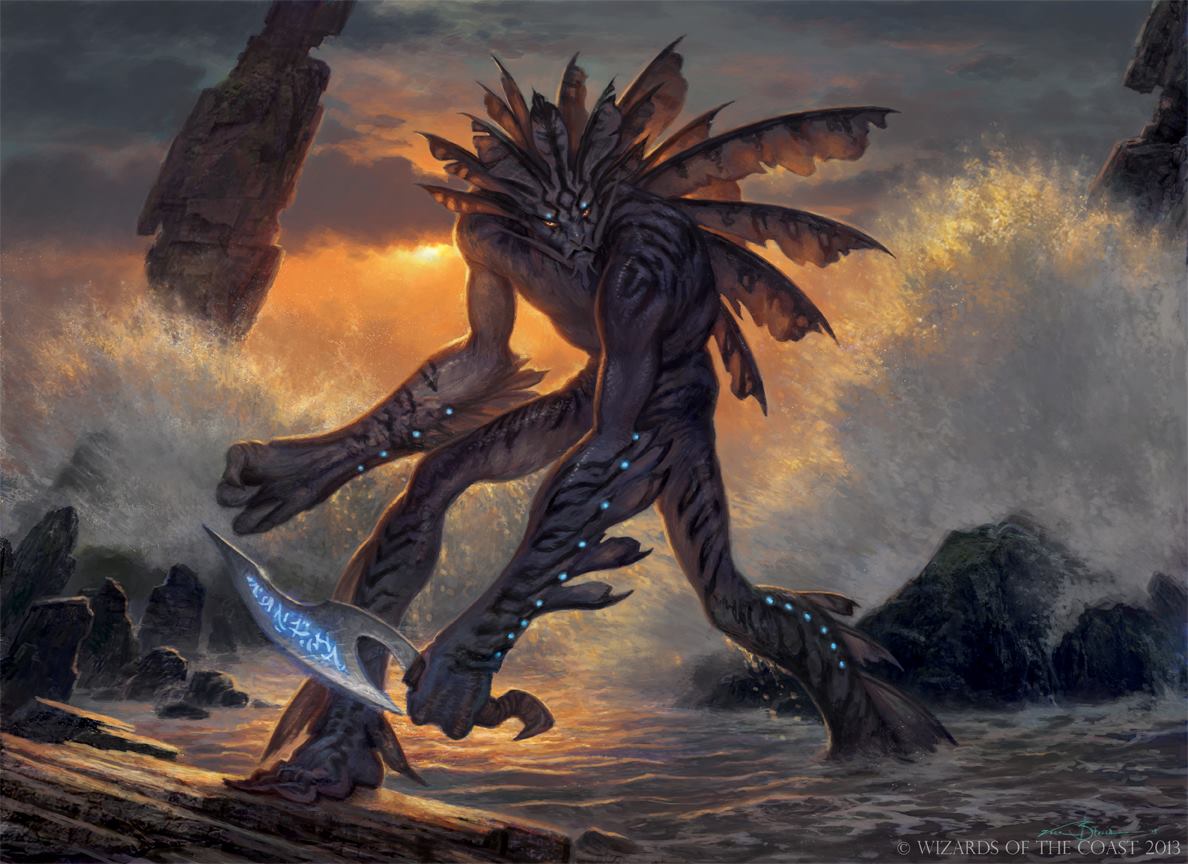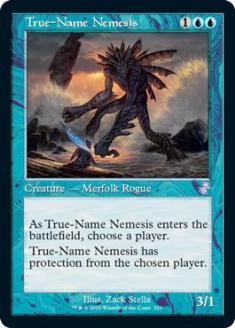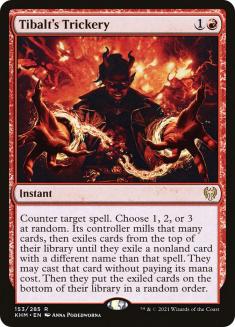Hello, and welcome to this week’s edition of Sullivan’s Satchel. This column was waved off for the first time in its history last week, as Cedric Phillips was so inundated with Kaldheim content (including a variety of Top 5 columns, which Cedric persuaded me to participate in before informing me of its relatively paltry rate) that he decided to put me on the sidelines for a week. All for the better; the satchel overflows with questions, helped in no small part by the first-time boost of $50 in SCG credit for this one, since the previous column had no questions worthy of my usual charity.
On the personal MTG front, I made a vow that I would draft Kaldheim on Magic Online until either I went 3-0 or opened a Valki, God of Lies, and after a half dozen shellackings Valki graced me with its presence, subsidizing my previous failures and then some. I also went 4-1 in a Pioneer League with Boros Wizards (no new cards). Nothing too interesting to report other than someone went off against me with The World Tree plus Wilderness Reclamation. You’ve got to load up the deck with a bunch of Gods you don’t really want to play to win in one shot, but The World Tree is such a low opportunity cost that maybe the whole thing is worth it. Something to look out for, I guess.
With that, you can send in your questions to [email protected] or DM me on Twitter @BasicMountain. Thank you as always to everyone who sent in.
From Ryan Overturf:
To what extent is it desirable to have a card/strategy dramatically impact multiple Constructed formats? Tibalt’s Trickery/Valki, God of Lies being the onus for the question, but I’m interested in the bigger picture as well.
Depends on a number of factors. Typically I’m a much bigger fan of subsidizing stuff that’s materially different from the stuff that’s already good; it’s both low on novelty (unlikely to promote other new cards if it can just slot into a skeleton that already exists) and likely to be broadly problematic (if the thing was already good, some new addition of rate is likely to make it even better). There are a lot of examples and none of them are exactly perfect, but think of Oko, Thief of Crowns in Legacy. People already played Tropical Island and Force of Will plenty and the card is so powerful and multi-dimensional that it’s unlikely to support fringe cards either to go along with it or fight it.
Compare that to the release of True-Name Nemesis a few years back. Yes, people already played blue tempo decks, with or without Equipment, but the card had such clearly defined strengths and weaknesses that it changed the rules of engagement and promoted some weirdos like Diabolic Edict and Marsh Casualties. I’m not trying to defend everything that card was about, just that it was disruptive and fit into pre-existing decks but wasn’t all downside by any means.
Tibalt’s Trickery is incredibly disruptive and it’s proving to be a significant piece of any format in which the cascade cards are legal. In one sense that’s novelty; those cards don’t show up a ton and they are kind of their own thing. In another, it isn’t novel because those cards don’t produce a two-player game. It’s like Belcher, in which you do your thing extremely quickly or else you mulligan to oblivion or your opponent has one of very few cards that engages quickly and consistently enough. I think Tibalt’s Trickery feels closer to a “bug” than a “new deck” and I don’t think the situation feels sustainable to most players, and that strips most of the upside of something new dramatically impacting multiple formats.
I think Fatal Push is a good example of doing it the right way. The card doesn’t read “fake”— in Limited or Standard, it’s very good against little stuff, very good against bigger stuff if you do some work, and completely ineffectual against a class of creature that removal is usually very strong against. Put that card next to Doom Blade or Banishing Light or whatever else and it isn’t obviously stronger than those options in low-power formats. Once you start playing in powerful formats (where expensive creatures get very little play, and in which triggering Revolt becomes trivial) the card becomes a star, though not without some weaknesses, maybe subsidizing expensive creatures a little bit, and so on.
I guess you can argue how “disruptive” that card is, but it shows up all over the place, isn’t power creep-y, and isn’t ruining anyone’s day. I guess my position is that it is some combination of how the card plays within the core terms of engagement, how even if it ends up being very popular that it doesn’t clearly invalidate previous options, and how likely it seems to be legal in a few months.
From Zac Whyte:
Non-Magic related: how do you feel about the Dodgers signing Bauer?
Trevor Bauer is a longtime associate of SCG Seattle Legacy Open champion Kyle Boddy (now of Driveline Baseball fame) who has bet on himself several times over the course of his career, so I’m happy for him regarding his payday. I really don’t know what “fair market” looks like when money is meaningless to the Dodgers front office, but the back end of the Dodgers rotation was a bit shaky last year (true of essentially every team) and replacing any one of those players with Bauer is huge, especially during shortened playoff rotations.
As it relates to the Padres, I shrug my shoulders. The Dodgers were better prior to this and it’s hard to quantify how much this moves the needle in real terms, health and randomness are going to have to break San Diego’s way to win the NL regardless, etc. It is annoying to have a division rival completely untethered to notions of fiduciary responsibility but it also makes the challenge of beating them more exciting.
From Travis Allen:
Do you think it’s a betrayal of leftist politics to make use of Magic cards as a profit seeking venture?
This is an interesting question for me, a leftist who has at times made use of Magic cards as a profit seeking venture. This topic also spills into other areas, like proxies and the abolition of the Reserved List, in which my positions have come under criticism (impossible to avoid, since all positions are held, and held strongly, by various people). Rather than answer the relatively narrow question posed here, I’d rather do a more broad unpacking of where I land on a number of adjacent topics.
Full disclosure: I don’t play much Magic anymore and don’t see that changing anytime in the near future. I’ve consolidated the majority of my collection into power. I stand to take a bath if Wizards of the Coast (WotC) reneged on the Reserved List, but nothing tragic or life-altering. Draw from that what you will, I guess.
“Leftism” isn’t a monolithic position, but an essential element of my politics is the desire to de-commodify human necessities — food, clothing, housing, health care, education. Part of this is the hope that everyone can be afforded an acceptable baseline of human care and dignity, and another part of this is the the devastating externalities that arise from allowing these things to be treated like any other “asset” subject to the vagaries and manipulation of markets.
Magic cards are not food or health care, not even close, and so even if some of my “leftist” sensibilities are troubled by elements of Magic, I think the co-opting of leftist/anti-capitalist sentiments towards, say, the affordability of niche Commander or Legacy cards not only unconvincing but evincing of a deep unseriousness regarding the person’s politics. If you literally can’t enjoy playing Commander unless you have a “real” copy of The Tabernacle at Pendrell Vale, I don’t think it’s everyone else whose being immature or myopic.
I don’t mind if people play with proxies in their local groups, and there is no real way to enforce a “ban” anyway, so whatever. I do mind them in competitive settings, as any proxy good enough to pass there is good enough to swindle a buyer.
Regarding the Reserved List, I understand the frustration. There’s no question I would own other Magic cards than the ones I do without the assurance of the Reserved List, and many other people have made the same calculation, pushing the price of those cards up with seemingly no end in sight. That said, removing the Reserved List and printing those cards again would be a transfer of wealth from me (and people “like me”) to WotC, hardly any sort of Robin Hood act. I’m certainly not asking for any sympathy or special accommodation, and if you just want these cards on the cheap, that’s fine, but you should disentangle that from any “leftist” sentiments and just admit you’re okay with a multi-billion dollar corporation detonating a bunch of individuals and vendors if you get what you want.
Lastly, I don’t see making a profit from Magic as being intrinsically problematic, and honestly less than most endeavors because the link of “profit” and “exploitation of labor” is far more tenuous there than in most profitable pursuits. I think acting ethically should be a broad charge for any individual or business, but Magic is far removed from a commodity I care about people taking “positions” on.
Lastly, the Question of the Week, and the winner of a Satchel record $50 in SCG credit, from Lavalamps:
For the satchel: what do you think is the best way for a competitive person to remain invested/involved in the game after deciding to stop playing competitively? I still have a deep love for the game but I can never seem to find a good way to have it in my life without falling back to old self destructive habits or spending time/money that I don’t want to.
I struggled with this for a long time. Competitive Magic is literally an unlimited time sink if you let it be — there are always more games to play, cards to get, articles to read, Twitter beefs to reply to, whatever. Also, once you get into that mindset, playing the game any other way (or to any other degree) can feel fake, especially since you’re likely to lose a lot more than you used to.
I found it useful to consume content that fell outside my usual channels — Commander, less established competitive players, cosplayers, etc. First, you might find people you genuinely like who you wouldn’t have discovered otherwise. But more importantly, it can give you the perspective that the game and its community is vast, and you can discover ways to engage with them that fulfills your desire to be party of Magic without feeling illegitimate towards the way you used to enjoy the game.




